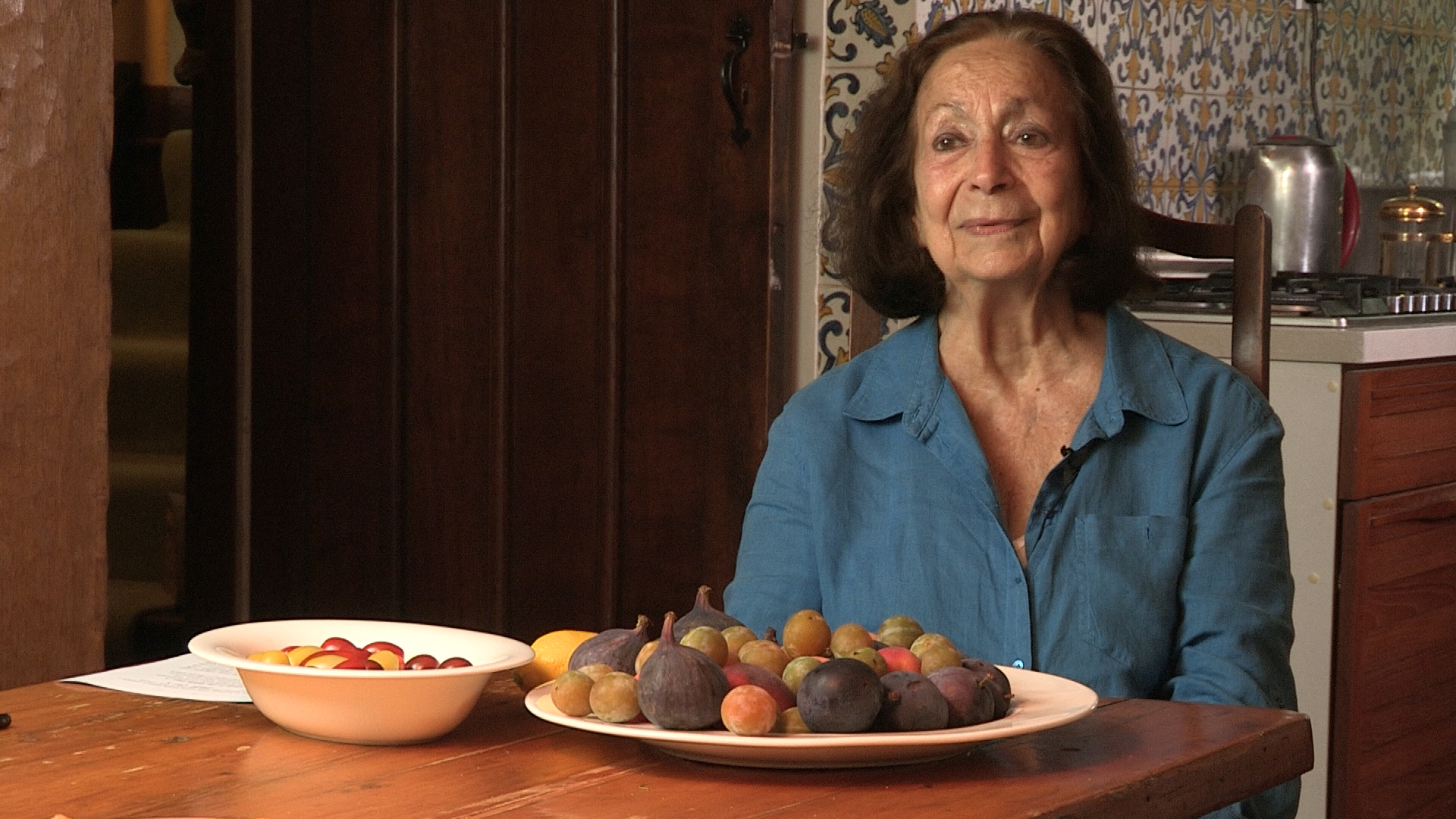NEXT STORY

Egyptian nouvelle cuisine
RELATED STORIES

NEXT STORY

Egyptian nouvelle cuisine
RELATED STORIES


|
Views | Duration | |
|---|---|---|---|
| 131. The poor villages in Egypt | 02:02 | ||
| 132. A bowl of different lentil soup | 02:21 | ||
| 133. Coco and Poussy | 1 | 04:03 | |
| 134. 'The cook only brings the food, doesn't say anything' | 02:57 | ||
| 135. Seminars on Egyptian food | 05:39 | ||
| 136. The history of Egyptian food | 03:58 | ||
| 137. What about dukkah? | 03:14 | ||
| 138. Egyptian nouvelle cuisine | 02:11 | ||
| 139. The businessman's not-so-impressive cooking | 01:49 | ||
| 140. The odd cuisine of Morocco | 1 | 04:33 |


Before I went, I met several people who were going to help with this event. They took me around the markets, they took me to places where they went at night and watched television and told jokes. They always tell jokes; the Egyptians are humorous. And so, after the seminar ended a lot of people came around and a lot of things were really funny that people told me. But there were very young ones who were journalists who said, 'Why did you leave?' They didn't know anything about what happened in 1956. They knew the war, but they didn't know that there had been Jews even. 'What was it like when you were there?', and: 'Can you give us Jewish recipes for the magazine?' And yes, I gave some Jewish recipes for their magazine. And they were thrilled.
And then there was somebody there who was a Lebanese who had, in the desert, brought water and he had a chicken farm. And to have a chicken farm he had also olive trees he grew. And he made olive oil. And he also made sun dried tomatoes to do fashionable things to sell abroad. Actually, their olive oil won awards abroad. And so, he came, and he said he had a restaurant right nearby. When I told them about what they should cook, because I had to tell them, I was going through things that were Egyptian and they would say, 'No, they don't like that'. And there were things they liked. They certainly like falafel. And they certainly like... there were things that they liked. But then, I said, 'What about dukka?' It's become a product of the world. Yotam Ottolenghi, everybody now... There's producers in England who produce dukka. It's the big thing of Australia. It's produced in America. And it came out originally from what my mother made. It is a mixture of spices, sesame seeds and crushed hazel nuts. And people make their own take now – America, in Australia, all the producers, they put a different seed sometimes. And they put a different spice or a different nut. And then I said, 'Why don't you make it? It's all over the world'. And they started laughing. Laughing. And they said this is what... it was a village thing. And it was also in the cities because my mother made it. And so, we had a good laugh.
Claudia Roden (b. 1936) is an Egyptian-born British cookbook writer and cultural anthropologist of Sephardi/Mizrahi descent. She is best known as the author of Middle Eastern cookbooks including A Book of Middle Eastern Food, The New Book of Middle Eastern Food and The Book of Jewish Food.
Title: What about dukkah?
Listeners: Nelly Wolman
Claudia Roden talking to her granddaughter Nelly Wolman about her life in food.
Tags: Egypt, Yotam Ottolenghi
Duration: 3 minutes, 14 seconds
Date story recorded: September 2022
Date story went live: 04 December 2023